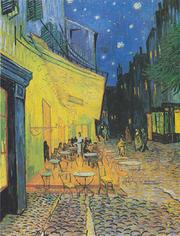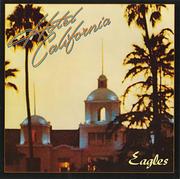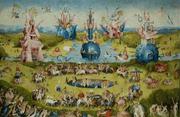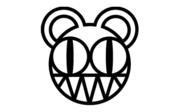Meaning of Radiohead OK Computer Song "True Love Waits"
BY K Shabi Updated 11 Jun 2022 PUBLISHED 04 Nov 2012
The song "True Love Waits" by Radiohead is a long-time fan favorite. First played live in concert in 1995, the song existed for years as a beloved OK Computer B-side track and unplugged acoustic ballad. For more than two decades, Radiohead tried to record a more complex studio version of "True Love Waits" — first for OK Computer, then Kid A and then again for Amnesiac. The band could not settle on a conclusive arrangement for "True Love Waits" until 2016, with the release of their ninth studio album A Moon Shaped Pool. What is the true meaning of the song lyrics to "True Love Waits" by Radiohead?

Radiohead "True Love Waits" Meaning: What is "True Love Waits" About?
What is "True Love Waits" about? A rare Radiohead song about love, many fans consider "True Love Waits" to be one of Thom Yorke’s best moments as a lyricist and songwriter. To explain the hidden meaning of "True Love Waits," we first must identify the narrator of the song. In most cases, one can assume that the person who wrote the lyrics is reflecting their own personal point of view, but that might not be the case for "True Love Waits." In his solo work and with Radiohead, Thom Yorke often experiments with different voices and viewpoints in his songs. For example, on OK Computer's "Fitter Happier," Thom Yorke uses a text-to-speak computer program rather than his own voice to deliver the lyrics of the song and to separate himself and his own persona from the overall meaning and experience of the song.
To have your babies
I'll dress like your niece
And wash your swollen feet
Just don't leave, don't leave
The Song Lyrics of "True Love Waits" by Radiohead Explanation & Meaning
There are several clues even in the first verse of "True Love Waits" that suggest Thom Yorke is not the song's narrator. The song lyrics "To have your babies" and "I'll dress like your niece" both strongly indicate that the intended speaker of the first verse of "True Love Waits" is a young woman, not a man. Obviously, women give birth and nieces, usually younger female relatives, are by definition female in gender. When asked in an interview about the meaning of these particular song lyrics, Thom Yorke also noticeably distanced himself from the speaker of "True Love Waits," referring to the song's narrator as "this person" instead of speaking in the first person. In the interview, Yorke explained the meaning of the first verse of "True Love Waits" in a revealing manner:
According to Thom Yorke, the narrator of "True Love Waits" is young — or at least still acts that way. This person, most likely a young woman, is a little naïve and not very "sensible." She believes that dressing young and sexy, maybe the way someone's "niece" would, will help her win the love and affection of the man she admires. At this point in her life — and this point in the song — she probably doesn't even really know what true love is yet.
"True Love Waits" Song Lyrics: OK Computer B-side
The last line of the first verse of "True Love Waits" reinforces the femininity of the song's narrator and also seems to allude to a famous female character in the Bible. Washing "swollen feet" may refer to Mary Magdalene, the former harlot who famously washed the feet of Jesus with her tears and hair in the Gospel of Luke. Believing that Jesus was the literal Messiah, Mary Magdalene obviously put him on a pedestal, regarding him as vastly superior to herself. She used her long hair, a symbol in ancient times of a woman's beauty and value, to wash his feet.
Like Mary Magdalene, the narrator of "True Love Waits" is subservient and traditionally feminine and does not seem concerned with preserving her own self-worth or ego whatsoever. While Radiohead don't make a lot of Bible references in their songs, it is interesting to note that "Mother Mary" appears in the lyrics of "I am a Wicked Child," another Radiohead OK Computer B-side track from the same era.
Analysis of Radiohead "True Love Waits" Song Lyrics
The young narrator of "True Love Waits" is definitely not a feminist or a very independent person. "I'll drown my beliefs to have your babies," she pleads. She is willing to give up her entire identity, letting go of everything she believes in and everything that makes her who she is. In her current state of mind, the sacrifice seems worth it to her. After all, she would be doing it in the name of her romantic ideal — for "true love." Her pleading desperation in the song's repeated refrain suggests codependency and fear of abandonment. "Just don't leave, don't leave," she begs. Is that really what true love sounds like? Maybe she is most afraid of being alone.
In haunted attics
And true love lives
On lollipops and crisps
Just don't leave, don't leave
True Story Behind "True Love Waits" by Radiohead
The young woman speaker in the first verse of "True Love Waits" does not have a healthy view of relationships or what true love really is yet. When asked about the hidden meaning of the song in another interview, Thom Yorke mentioned a newspaper article he read about a little kid who was left at home alone who survived for a week eating only candy and junk food — what Yorke refers to as "lollipops and crisps."
In the third verse of the song, Radiohead suggests that maybe the highly commercialized and consumable product of "true love" is itself a form of junk food, both on a personal and cultural level. A child left alone without adult supervision or guidance is motivated more by immediate gratification than what is healthy for them. An unsupervised child is more likely to feast on candy than vegetables, even if it makes them feel physically bad or sick afterwards. Is true love the same way?
Christian Purity Rings & The Song Lyrics of "True Love Waits"
In fact, "True Love Waits" is also the name of a Christian youth abstinence movement that gained mainstream popularity in the 1990s. The program promotes sexual abstinence outside of marriage for teenagers and college students. Members of the group could buy and wear rings as outward tokens and symbols of their pledge and commitment, sometimes referred to as promise rings, chastity rings or purity rings. The True Love Waits fad blew up in 1993, just a couple years before Radiohead debuted the song live in 1995. It seems very likely that this Radiohead song was in fact inspired by the True Love Waits movement.
Interpretation of "True Love Waits" Song Lyrics by Radiohead
Is the romantic ideal of true love, sold in so many teen dramas and romantic comedies, really a healthy dream to follow? The song's message becomes clear in its final verse: True love waits. Like the narrator of "True Love Waits," we all have a fantasy of what true love is like when we are young, and that can lead us to desperate and unhealthy places. It's not until we've gained wisdom and experience that we start understanding what true love really is and, more importantly, what it is not.
Radiohead Songs About Love: Is True Love Real?
"True love lives in haunted attics," Thom Yorke sings empathetically in the third verse, perhaps himself speaking from experience. Maybe true love really only exists when we're young. Later in life, our fantasy is replaced by reality, and our youthful dreams of "true love" are stored away in the "haunted attics" of our memories. The composition of the song follows the same pattern: the first verse is all about making mistakes and misunderstanding. We often have to wait and be patient before we can truly understand and see the bigger picture later on.
I'm just killing time
Your tiny hands
Your crazy kitten smile
Just don't leave, don't leave
True Love Waits: The Hidden Meaning of the Radiohead Song
So what is the hidden secret meaning of Radiohead's song lyrics for "True Love Waits"? Unsurprisingly, after analyzing all of our Radiohead's songs, a data scientist revealed that "True Love Waits" is Radiohead's saddest and most depressing song. But the song ends in a better place than it starts. While the refrain "Just don't leave, don't leave" reappears as the closing line, it hits different this time, as the narrator is no longer controlled by codependency and fear, but now shows genuine growth, fondness and appreciation for little things, like his partner's "tiny hands" and "crazy kitten smile." "True Love Waits" is a unique Radiohead love song to which almost anybody can relate to. This is probably why the song is loved and adored by so many fans.







